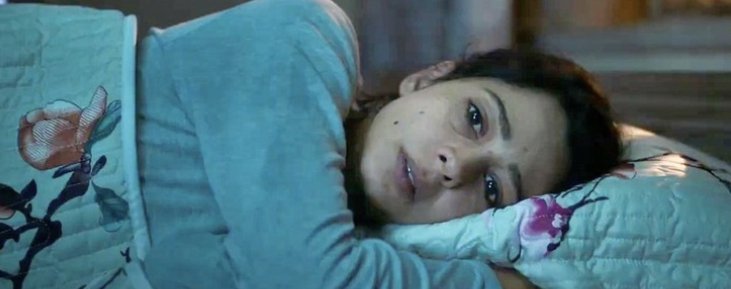Reem (Maisa Abd Elhadi) finally has the time to visit the hair salon. Life has been busy with a baby and a jealous husband, she tells Huda (Manal Awad). They joke around about social media and relationships, but little does Reem realize that Huda has spiked her Turkish coffee with anaesthesia.
What a great start to a disappointing film.
It turns out that Huda has been reluctantly working for an Israeli spy agency — she lures targets to her salon, drugs them, and photographs them in compromising positions. It’s blackmail, and Huda hates herself for doing it, caught in a conflict between two sides that hate each other. It’s this internal struggle that drives the film forward, especially after Huda is exposed as a traitor and kidnapped by the Palestinians looking for all the dirt she has.
That’s the set-up of “Huda’s Salon,” a film that I saw at TIFF last fall and that is finally getting released Stateside. The film, a soapy and didactic treatise on the Palestinian-Israeli conflict, is mostly composed of political conversations between Huda and her Palestinian rebel kidnappers in a secretive underground lair.
A subplot involving Reem, now in a terrorizing state of blackmail, fares a little better. Huda’s victim now must confront the fact that she is a traitor to her people — what should she do? Tell the truth to her abusive husband and run the risk of shame in her community or, even worse, getting killed?
The film’s director, Hany Abu-Assad, wants to pretend that his film is launching philosophical ruminations on a conflict that feels neverending, but the result ends up falling flat, the conversations middling and trite. You also can only take so much of his insistence on using shaky handheld camera and jarring close-ups. The decision for dual narratives also feels messily edited. Abu-Assad’s intentions are in the right place, but that doesn’t always make for a great movie. [C-]






